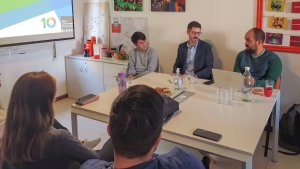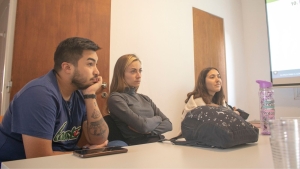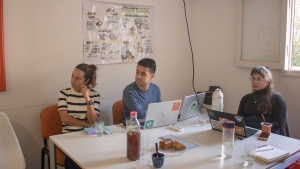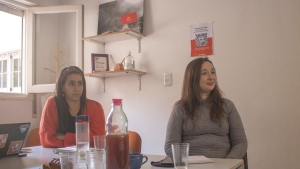From the Argentine Open Government Civil Society Collective, we request that all levels of the State take special account of transparency, participation and collaboration policies in public decision-making to manage the current crisis. At the same time we make ourselves available to collaborate, inspect, monitor and contribute to public decision-making.
“Below, we offer a google translate version of the original article in Spanish. This translation may not be accurate but serves as a general presentation of the article. For more accurate information, please switch to the Spanish version of the website. In addition, feel free to directly contact in English the person mentioned at the bottom of this article with regards to this topic”.
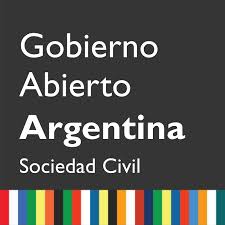
Communiqué of the Collective of Civil Society of Argentina of Open Government in relation to Covid-19
To the national government, to the provincial and municipal governments, and to all the judicial and legislative branches of Argentina;
The Covid-19 pandemic at this point represents the most important challenge we have faced in decades, both globally, regionally and locally. Its impacts are substantial not only in health matters, but they significantly affect our economies, public services, institutions, the educational system, the inequality of our societies, the systems of protection of rights and many other crucial areas for development and well-being. of our peoples.
The measures taken jointly by the different governments of our country have so far mitigated part of the health effects of the pandemic and prepared our health systems for a possible increase in the number of infections. This enormous community effort, crystallized mainly in social, preventive and compulsory isolation, implies that our public institutions must continue to implement emergency measures that involve a large amount of public resources. Some examples of this are budget reallocations, large-scale purchases and contracts, transfers of funds to sub-national governments, expansion of social aid programs, and subsidies or exemptions to the private sector, among others.
The scope of these challenges is not exclusive to our executive powers, but rather that our legislative and judicial powers also face demands for which they were not fully prepared. In both cases, their effective operation is vital so that the responses to the pandemic adjust to democratic parameters and protect the rights of society as a whole, and in particular of the most vulnerable groups.
We know that the challenges and difficulties in this context are many, and that is why we believe that collaboration is necessary to strategically think about desirable and possible actions for governments to face the pandemic and recovery in the coming months in an open, transparent and participatory, facing the citizens who expect answers and who also have knowledge to contribute. In this framework, the principles of open government must be considered as a necessary part of the solution and as a way to provide agile responses in the pandemic response process.
As a first step, it is essential that the State, at all levels and powers, guarantee access to the necessary public information so that citizens can monitor and participate in an informed manner in emergency public policies. This implies guaranteeing the open information and accessibility of all the information related to sanitary measures, the use and distribution of public resources, public purchases made, programs aimed at protecting the most vulnerable groups, etc.
It is also essential to promote the full operation – by remote means if necessary – of all public institutions, especially of deliberative bodies such as the National Congress, provincial legislatures and deliberative councils, and the judicial powers of the nation and the provinces.
In addition to the necessary democratic control over the measures taken by the executive powers in this emergency situation, the legislative and judicial powers have non-delegable functions that must be resumed shortly to prevent the impact of the pandemic from deepening.
In turn, the full participation of citizens should be the way in which the different governments seek the solutions that this context demands, taking special consideration by the voices of traditionally excluded groups and communities. The process of formation and implementation of public policies must be based on evidence and on active listening by citizens as basic inputs to reach the most inclusive decisions possible.
On the other hand, in order to guarantee the effectiveness of sanitary measures, the government must pay special attention so that basic civil rights, such as the right to privacy or freedom of expression, are not violated, especially in the digital space. In situations where the use of databases is proliferating, it is essential to ensure unrestricted respect for people’s privacy. This implies that its activity by digital means or the use of mobile applications is free from undue interference from the public forces.
Lastly, the fight against corruption must occupy a central place on the public agenda in order to ensure that economic resources are allocated fully and efficiently to face the pandemic. Public monitoring of the use of public emergency resources, particularly in the area of public procurement, must be sought by the control bodies and made available to the public through the publication in open formats of all its details, such as the amounts, suppliers and types of processes. The resources that are diverted due to the effects of corruption differentially affect the most vulnerable groups in times of normality, which deepens in these contexts.
The organizations of the society involved signatories make ourselves available to collaborate, inspect, monitor and contribute so that, also in times of crisis, our governments respect the values of open government, can mainstream this paradigm and continue working in public decision-making based on evidence and guaranteeing transparency.Open Government Collective Argentine Civil Society.
Signatories:
Acción Colectiva
Amnistía Internacional Argentina
Asociación Civil Grupo Puentes
Asociación Civil por la Igualdad y la Justicia (ACIJ)
Centro de Implementación de Políticas Públicas para la Equidad y el Crecimiento (CIPPEC)
Datos Concepción
Democracia en Red
Educar 2050
Escuela de Fiscales
Fundación para Estudio e Investigación de la Mujer (FEIM)
Fundación Americana para la Educación
Fundación Cambio Democrático
Fundación Conocimiento Abierto
Fundación Directorio Legislativo
Fundación Huésped
Fundación Nuestra Mendoza
Fundación para el Desarrollo de Políticas Sustentables (Fundeps)
Laboratorio de Políticas Públicas (LPP)
PARES
Poder Ciudadano
Red Nuestra Córdoba
Salta Transparente
TECHO
Wingu – Res Non Verba Asociación Civil

